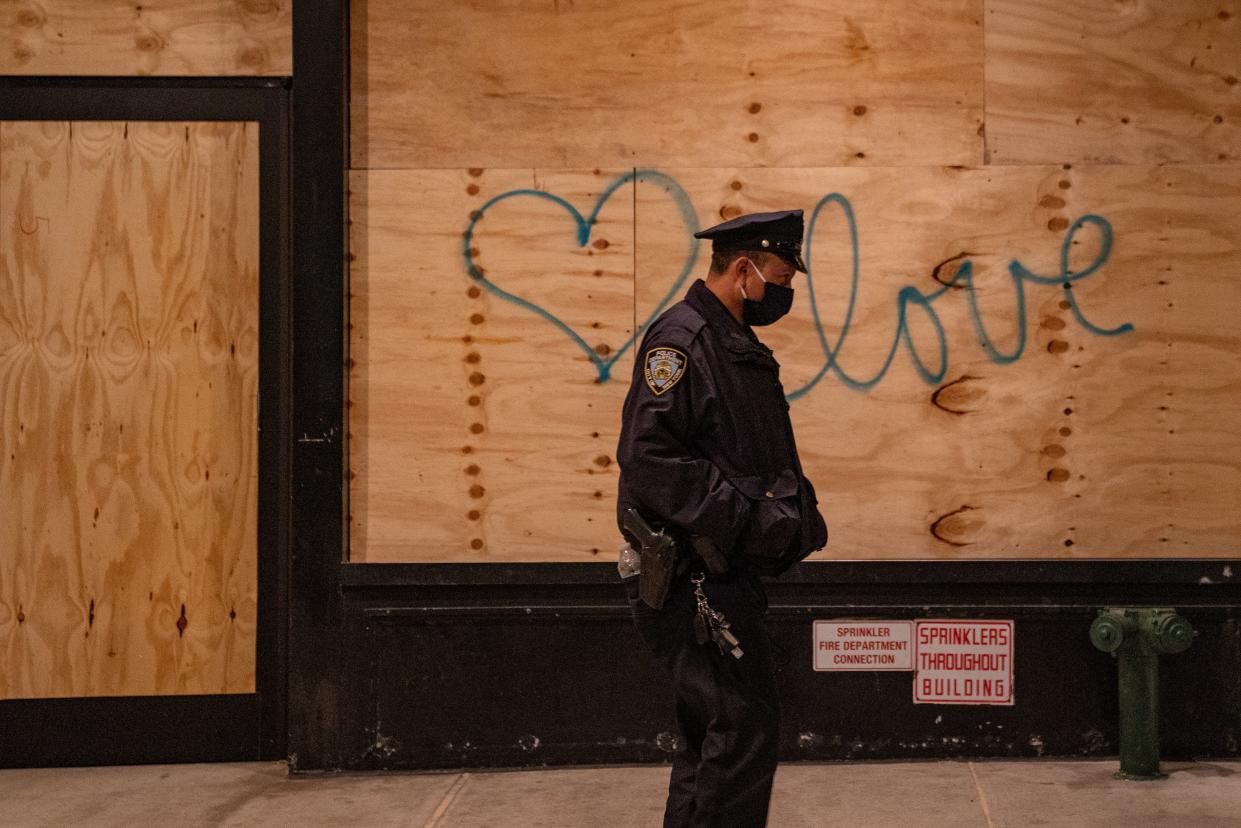New York police watchdog official defends officers’ right to flirt with members of public

The member of New York police watchdog asked for re-look into sexual misconduct definition
(Getty Images)An official of a New York police watchdog defended the right of officers to flirt with members of the public while on duty, explaining that many of the policemen would lose the opportunity to have a romantic partner.
Frank Dwyer, a former police officer of the New York Police Department (NYPD), raised the concern during a virtual meeting of Civilian Complaint Review Board (CCRB) that was discussing guidelines to follow over allegations of sexual misconduct against policemen.
Mr Dwyer said the definition of “on-duty sexual or romantic propositions” is the equivalent of “can I buy you dinner.”
“And I can assure you about one-third of the police department would not have a partner in life if they were not allowed to say those lines,” he said.
He suggested, therefore, words like “unwanted sexual proposition” and “unwanted romantic proposition or words such as “aggressive” or “rude” be added to the definition of sexual misconduct to give more clarity.
In 2018 the watchdog group allowed filing sexual misconduct cases against police officers and carry investigations into the allegation but it was stalled after a police union’s lawsuit to seek public comment first.
Mr Dwyer’s suggestions were followed by silence from the members before the group’s chairman Fred Davie responded disapprovingly to Mr Dwyer’s proposal. Mr Davie and 13 other board members voted to reject the proposal.
Two other members objected to Mr Dwyer’s suggestion, saying it is “unprofessional”.
Esmeralda Simmons said police officers and civil servants should not be involved in any informal conduct, “be they sexual or romantic, to the people they’re supposed to serve”.
On Wednesday, Mr Dwyer wrote an email to the board, agreeing that officers when interacting in a “power-oriented relationship, for example... should not attempt to establish personal relationships.” But exceptions should be made in cases when officers are regularly interacting with a particular civilian.
“The current definition adopted by the board defines this example as a disciplinary matter and existing policy allows another person to make a complaint about it, even if the doctor - who she has met 10 times - is delighted to receive the invitation,” he said.
Read More
Dallas police officer charged with 2 counts capital murder
FBI won't 'sidestep' sexual misconduct claims, director says
New York police officer uses patrol car loudspeaker to shout 'Trump 2020'

 Yahoo Movies
Yahoo Movies 
